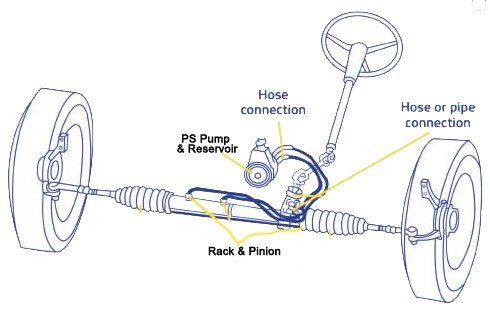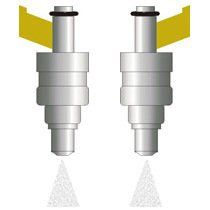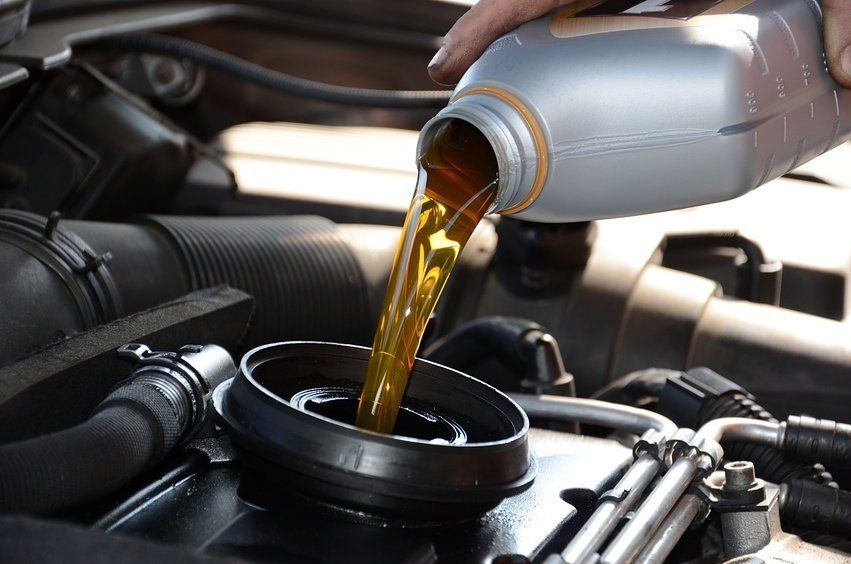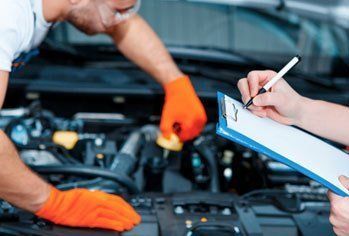When You Hear the Crash in Yorktown Heights: What to Do After an Accident
Mariell.Espares • 11 July 2022
Contact Us Today

Motorists in North America drive about three trillion miles every year. There are over 250+ million licensed drivers, and approximately 6.2 million accidents happen every year. Unfortunately, if we’re going to drive vehicles, there are going to be accidents. Knowing what to do in case of an accident can help reduce the stress and cost of the situation. It can also protect you from false claims, incorrect judgments and unjust liabilities.
Never leave the scene of an accident. This is a crime, even if the accident is not your fault. If you leave the scene, it is referred to as a “hit-and-run,” and the fines are steep in NY. You can even lose your driver’s license or spend some time in jail. If someone has been injured in the accident, most laws require you to help them. You must call for help. If you can, you must also render first aid.
Call 9-1-1 or get someone else to call 9-1-1 as soon as possible. Tell the operator if there are injuries or any circumstances that require fire services, such as leaking gas, broken utility lines or, of course, flames. Put out flares, turn on your flashers or lift your hood to warn other Yorktown Heights motorists that there’s been an accident.
File a police report. This can seem like a hassle when there are no injuries and only minor damage to vehicles. But you’d be surprised at the lawsuits and false claims that can arise from fender benders. You want a police report to protect yourself.
Don’t talk about the accident with anyone except the police. After an accident, adrenaline is pumping and emotions are running high, and our first reaction is often to relive and recount our experience. Don’t. Again, people can and will use your words against you, and in a highly emotional state, you may not say exactly what you mean. Entire court cases have hinged on the meaning of one misplaced word. Talk to the police. Don’t admit guilt or fault. Not to the police or to anyone else. People often feel guilt after an accident, but later, when details are analyzed, it turns out not to be their fault. Don’t say, “I’m sorry,” but rather, “Can I help? What can I do?” Sympathy has often been misconstrued as an admission of fault. On paper, your words will sound more sterile than at the accident, and they can be used against you.
Collect contact information from everyone involved in the accident. Get the officer’s name and badge number. Get the other driver’s name, address, phone number, date of birth, driver’s license number and expiration and insurance information. Get a description of the other vehicle as well as its license plate number and vehicle identification number. Most insurance companies don’t keep records of license plate numbers, so the VIN is the best identifier you have of another vehicle.
This is going to be too much to remember once you’re in an accident. So write down or make a note on your phone with the information you need. Ask witnesses to wait for the police to arrive. If they can’t, then get their contact information. Ask them to jot down what they saw. If witnesses refuse to give you their names, write down their license plate numbers. That way the police can find them if necessary. After the accident, call your insurance company. Also, if you have or think you might have an injury that did not require immediate care at the accident, contact your physician right away. There’s a lot Yorktown Heights drivers can do to prevent accidents. Defensive driving. Good car care and preventive maintenance. But if an accident does happen in the Yorktown Heights area, we should be prepared to handle it well. It will ease the stress of the situation and protect us from potential legal and financial harm. Be prepared. It’s good auto advice in every situation. Ask our pros at Autobahn Car Repair for more safe driving tips the next time you visit.
If you would like an info report to be kept in your vehicle, Click text below “Accident Info Form” Feb 19th, 2017 Ron Guarino, Autobahn Car RepairThe body content of your post goes here. To edit this text, click on it and delete this default text and start typing your own or paste your own from a different source.
Call 9-1-1 or get someone else to call 9-1-1 as soon as possible. Tell the operator if there are injuries or any circumstances that require fire services, such as leaking gas, broken utility lines or, of course, flames. Put out flares, turn on your flashers or lift your hood to warn other Yorktown Heights motorists that there’s been an accident.
File a police report. This can seem like a hassle when there are no injuries and only minor damage to vehicles. But you’d be surprised at the lawsuits and false claims that can arise from fender benders. You want a police report to protect yourself.
Don’t talk about the accident with anyone except the police. After an accident, adrenaline is pumping and emotions are running high, and our first reaction is often to relive and recount our experience. Don’t. Again, people can and will use your words against you, and in a highly emotional state, you may not say exactly what you mean. Entire court cases have hinged on the meaning of one misplaced word. Talk to the police. Don’t admit guilt or fault. Not to the police or to anyone else. People often feel guilt after an accident, but later, when details are analyzed, it turns out not to be their fault. Don’t say, “I’m sorry,” but rather, “Can I help? What can I do?” Sympathy has often been misconstrued as an admission of fault. On paper, your words will sound more sterile than at the accident, and they can be used against you.
Collect contact information from everyone involved in the accident. Get the officer’s name and badge number. Get the other driver’s name, address, phone number, date of birth, driver’s license number and expiration and insurance information. Get a description of the other vehicle as well as its license plate number and vehicle identification number. Most insurance companies don’t keep records of license plate numbers, so the VIN is the best identifier you have of another vehicle.
This is going to be too much to remember once you’re in an accident. So write down or make a note on your phone with the information you need. Ask witnesses to wait for the police to arrive. If they can’t, then get their contact information. Ask them to jot down what they saw. If witnesses refuse to give you their names, write down their license plate numbers. That way the police can find them if necessary. After the accident, call your insurance company. Also, if you have or think you might have an injury that did not require immediate care at the accident, contact your physician right away. There’s a lot Yorktown Heights drivers can do to prevent accidents. Defensive driving. Good car care and preventive maintenance. But if an accident does happen in the Yorktown Heights area, we should be prepared to handle it well. It will ease the stress of the situation and protect us from potential legal and financial harm. Be prepared. It’s good auto advice in every situation. Ask our pros at Autobahn Car Repair for more safe driving tips the next time you visit.
If you would like an info report to be kept in your vehicle, Click text below “Accident Info Form” Feb 19th, 2017 Ron Guarino, Autobahn Car RepairThe body content of your post goes here. To edit this text, click on it and delete this default text and start typing your own or paste your own from a different source.
Share
Tweet
Share
Mail

by Mariell.Espares
•
11 July 2022
Have you ever experienced a front tire blowout? This can be a harrowing experience as most of the time the tire pressure is expelled instantly causing the vehicle to pull to the side of the blowout. If you are in a defensive driving mode (full focus on driving, hands on steering wheel 10:00 and 2:00 driving positions, hands gripping the steering wheel) you are ready for anything and the steps are simple and intuitive for an experienced driver. Let create a scenario: You are driving on the Taconic Parkway on your way home to Yorktown Heights, NY, you are in the middle lane, suddenly there is a pop and the vehicle dips in the right front and starts pulling to the right, what will you do? A] Bounce off the car on your right to help straighten your vehicle and let the other vehicle fend for itself? B] Slam the brakes and pray to your favorite deity and promise you will return to mass. C] Accelerate like a wounded animal running from his predator. D] Let go of the steering wheel and scream like a scared baby. E] Read what to do when you get a blowout while driving, listed below. ___________________________________________________________________________________ Try to relax; don’t hit the brakes, and just try to steer slightly to keep vehicle in your lane. You may have hit the brakes and vehicle may veer further to right and if ABS equipped (most likely vehicle) may now pull to left. Ease off brakes, no further sudden reactions. While this is occurring you may need to accelerate slightly to regain control, then ease off and try coasting down in speed. You need to know what is around you through your 3 mirrors. (Future blog). Put on your signal to pull off the road and slow down gradually till it is safe to stop and put on your 4 way flashers. Make sure the vehicle is completely off the highway lanes with your mirrors. Do not get out of your vehicle till you know it is safe. Once it is safe set up flairs or reflective warning triangles. (Future Blog) If you cannot safely or do not know how to change your tire, Call for road side assistance or 911 for help, hopefully you know what exits you are near. If you are changing your tire, be very careful: A] You should first put on work gloves B] Tire will be very hot and will burn you C] Steel cords may be sticking out of tire, which can cut you severely D] Remember to crack your lug nuts loose before jacking vehicle and set emergency brake. E] Once jacked up and lugs removed what do you do if wheel won’t come off vehicle? (Future blog) Mar 27th, 2017 Ron Guarino, Autobahn Car Repair

by Mariell.Espares
•
11 July 2022
Setting up your vehicle mirrors for defensive driving is explained here. Properly set up mirrors provide you with a quick glance and no head movement, an awareness of what is on either side and in back of your vehicle at all times. We are responsible for the people and or pets we are transporting. We are responsible to our fellow drivers on the road. We need to anticipate what another driver may or may not do while driving, to avoid a collision. Defensive driving is a complex subject for future blogs. Mirrors need to be adjusted once we are seated in the driver’s seat and seat belts are buckle. First set the rear view mirror in a position to see out as much of the rear window possible and as much viewable distance. When moving your eyes to look up at the mirror, there should be no neck movement. Become more conscious of your neck movement if this has become a habit for you. Just a quick eye movement when driving and you can see any speed demons coming up behind and you can focus on the road ahead again quickly. Side view mirrors are probably the most under-utilized by most drivers. When set up properly, there is no need to turn your head when using your rear view and left side view mirrors only your right side view mirror will require some head turning to make lane changes. The driver side mirror, just like the rear view mirror needs to be viewable with just with eye movement. A quick glance is all you need to know what is along the left side of vehicle or behind you. According to S.A.E. (Society of Automotive Engineers) to adjust the driver side mirror properly, lean your head against the driver side window and adjust the driver mirror so you see the tail end of your vehicle. This will now eliminate your left side blind spots. Most people set this mirror to see the tail end of their vehicle in normal driving position, creating blind spots. According to S.A.E. (Society of Automotive Engineers) to adjust passenger side mirror properly lean your body so your head is positioned over the middle of the two front seats. Now adjust the passenger side mirror so that you see the tail end of your vehicle. This will now eliminate your right side blind spots. Most people set this mirror to see the tail end of vehicle in normal driving position, again creating blind spots. When change lanes to your left or right and have been monitoring what is around you, you can change lanes easier and in a safer manner, all without turning your head except when using right side mirror, some head turning will be necessary. Once your mirrors are set up correctly, when driving you will now notice that as vehicle move up or back along both sides of your vehicles you will see them switch from rear view to that side mirror and vice versa. The only issue would be if you have a peripheral vision issue and can’t see what is right next to you, then head turning will be always be required. Mar 29th, 2017 Ron Guarino, Autobahn Car Repair

11 July 2022
What is Power Steering (PS) what does it do, do I need it and does it require service? Power Steering adds assisted steering to reduce effort required to turn the steering wheel. Most Power Steering System equipped vehicles have a fluid pump (PS Pump) driven by a belt off of the engine pulleys by a belt. Fluid is stored in a reservoir which supplies the pump sometimes reservoir is attached to pump and sometimes is separate. The pump pressurizes the fluid and pumps it through a high pressure hose to the PS equipped steering box or rack and pinion to help assist in turning the wheels. Then there is a hose which returns the fluid to the reservoir container. Many of today’s vehicles are being equipped with electric assisted steering. One type uses an electric motor to drive a fluid pump as described above eliminating the belt, another type has a motor built into a rack and pinion which directly turns the input steering shaft aiding in turning the wheels. This eliminates the belt and pump (pros and cons another discussion). A vehicles power steering system, gives the driver leverage to turn the steering wheel. Without PS it would be very physically strenuous to try and turn the steering wheel when maneuvering vehicle at low speed and almost impossible to turn steering wheel when not moving. Generally speaking most PS equipped vehicle can have you turn the steering wheel from all the way left to the right (called lock to lock) in about 2.5 turns. For vehicle not equipped with PS steering, called manual steering, lock to lock would probably start at 3.5 and up turns for the same turning capability, and would be hard to steer standing still. As you start to drive a vehicle the turning effort diminishes with speed, but manual steering equipped vehicles will not have the quick reaction time with one handed driving as would a PS equipped vehicle. Most of you would agree that PS is an essential item to have in our vehicle to be able to park between vehicles, also having less lock to lock turning requirement. Like any other fluid used in a vehicle they will need servicing. PS belt will need replacement over time and both electric and belt driven pump assisted systems will need to have fluid inspected at least every 30k miles (30,000) and if needed flushed. We can only protect our PS system by flushing the fluid. PS fluid break down will lead to PS pump failure, rack & pinion or PS box failure all expensive repairs and all require flushing of system when new parts are replaced.

11 July 2022
Do you have fuel injectors and do they need servicing? Carburetors have been eliminated because of their limited ability in precise fuel metering and lack of speed to make on demand changes. Fuel injectors spray fuel in a particular pattern that is specific to the engine it was engineered for. This is done for optimum fuel efficiency, emissions and performance. Electronic fuel injectors and computer controls have allowed the vehicles of today to obtain the incredible power, emission and efficiency that could not be attained without fuel injection and the advanced computer controls. Now we have taken our fuel injectors and placed them into the combustion chamber. This now allows fuel delivery in the exact area of combustion with the capability of precise timing of fuel delivery and multiple timed injector activations. With this capability it allows much leaner fuel mixtures and increase compression ratios and control over pre-ignition (when fuel ignites before ignition is supposed to ignite). This in turn increases fuel economy, power and reduces emissions, a win, win. Fuel injectors are a very precise piece of the fuel system so it makes sense that they need servicing. Injectors get exposed to oil vapors, fuel vapors, varnish, carbon deposits and sometimes dirt. This causes the spray pattern of an injector to be disrupted and altered. To help alleviate this problem they need cleaning. Autobahn Car Repair use some of the best chemicals and equipment for the cleaning, which we first evaluated on our own vehicles before we would offer them to our customers. There have been many products through the years we have tried, many of which were a waste of time and money. We need results and want the best for our clients. So give us a call and set up your appointment for fuel related issues. Mar 20th, 2018 Ron Guarino, Autobahn Car Repair Below are illustrations of general dirty failing injectors.

11 July 2022
Most people get an oil change in Yorktown Heights, NY for their car because it seems like it’s time or because it looks low or dirty. But that’s not a very solid system for a crucial part of vehicle maintenance. At Autobahn in Yorktown Heights, NY we provide full service oil changes, and set up a mileage interval that is specific to your car, not just the generic “every 3,000 miles” suggestion. An oil change diagnosis like this, when done properly at Autobahn, involves checking specific criteria to see if you drive in what we consider severe driving conditions. These conditions include, but are not limited to: frequent stopping and going, which many urban or city drivers experience short trips, like running errands around town towing, as in pulling a trailer or loading your vehicle down with heavy items weather extremes, like hot pavement or frozen roads Synthetic Oil Different kinds of driving require different things from an engine’s motor oil. Autobahn technicians know their customers and their cars. They know that cars and drivers who spend most of their time racking up the highway miles have different needs than cars and drivers who stop-and-go around town every day. Autobahn can recommend to their customers an oil change in Yorktown Heights, NY with synthetic motor oil for high heat driving conditions or may recommend an oil change with traditional motor oil for less demanding drivers. Customers rely on Autobahn’s familiar faces and experienced technicians, which is why they become customers for life. If you drive your vehicle in any of these conditions, you might need to get your oil changed more often than the 3,000-mile marker. Bring your car into Autobahn so that our experienced team of professionals can give you a proper oil change in Yorktown Heights, NY and an appropriate interval suggestion specific to your vehicle. Suppose I need more than just an oil change? Autobahn technicians are full-service automobile professionals. Autobahn can diagnose and correct a variety of automobile issues: Air Conditioning Battery Service Bearings & Bushings Belts & Hoses Brake Systems Charging & Starting Computer Diagnostics Cooling & Heating Systems Drive Train Systems Electrical Systems Engine Repairs Engine Tune Up Factory Service Fuel Injection Gaskets & Seals NY State Inspection Oil Changes Struts & Shocks Tire Sales & Repair Transmissions Warning Lights Wheel Alignments Autobahn is local, fast, convenient, and knowledgeable of their customers and their cars. If you want to schedule an oil change in Yorktown Heights, NY, give us a call at (914) 962-7170.

11 July 2022
How to keep your car cruising through summer Your car’s engine generates a lot of heat as it runs. Add to that the heat coming off the road when sitting in traffic around Cortlandt Manor or rolling down the interstates of New York State, and you’ve got conditions that can degrade your engine oil, tax your engine coolant, and clog your fuel intake. These effects build up over time and can cause your car’s engine to experience all sorts of generalized symptoms that can compromise its performance. What’s the problem? Oil : The durability of your engine oil (its viscosity) is greatly determined by the type of use your engine typically experiences. Stop-and-go driving around town can cause more wear and tear on an engine’s components than can steady highway driving over time. Towing a trailer, hauling cargo, and driving off road also affect the usable life of your engine’s oil. Long, hot summers and cold, wet winters take their toll as well. The kindest stroke you can give your automobile’s engine is to treat it to a regular schedule of oil and filter changes . Your car’s owner’s manual will specify the intervals for oil and filter changes (expressed in the number of miles driven). Talk to your mechanic about your driving needs and habits and let them advise you on the best schedule of oil and filter changes for your car. Fuel : Not so much the fuel itself, but the deposits that are left on fuel intake surfaces like injectors, valves, and combustion chambers after the fuel burns can compromise your engine’s performance . Carbon deposits are a by-product of the fuel combustion process, and this carbon can coat vital engine parts with sludge that will solidify or get gummy if not treated. A dirty fuel system can restrict the flow of fuel and air into the combustion chambers causing them to burn inefficiently. Dirty injectors can cause ignition problems like engine knock and pre-ignition firing. Fluids: many systems of automobiles today are hydraulic, meaning that they use a liquid (often under pressure), to activate a function like steering or braking. Your car uses a pump to pressurize the liquid in the system. Like engine oil, these system fluids are usually petroleum based, and as such they are prone to degradation over time. Checking these liquids is often nothing more than a quick check of the dipstick, but there is maintenance required too, like changing these fluids at regular intervals, just like your engine oil. Power steering fluid keeps the steering wheel turning smoothly and without much effort. If you’re experiencing vibrations or unusual noises when turning the steering wheel, have your mechanic inspect your system and its fluid. Brake fluid works much like power steering fluid in that the liquid, under pressure, activates a function of the car when we operate a switch like the brake pedal. Brake fluid makes using your car’s brakes easy and effective. If you’re experiencing vibrations or unusual noises when using your car’s brakes, have the system inspected by a professional mechanic. Since 1984, Autobahn has made client satisfaction our utmost priority. Our dedicated team of knowledgeable and experienced technicians delivers outstanding technical and customer service. From simple maintenance to major repairs, we specialize in ALL MAKES AND MODELS of automotive repair. Autobahn’s 32 years of experience guarantees you QUALITY, CONVENIENCE and a DIFFERENCE that you will know when you become our customer!
2034 Saw Mill River Rd Yorktown Heights, NY 10598
Mon, Tue, Wed & Fri: 8:00 am to 5:00 pm
Thur: 9:00 am to 5:00 pm
Sat & Sun: Closed
© 2025
All Rights Reserved | Autobahn
